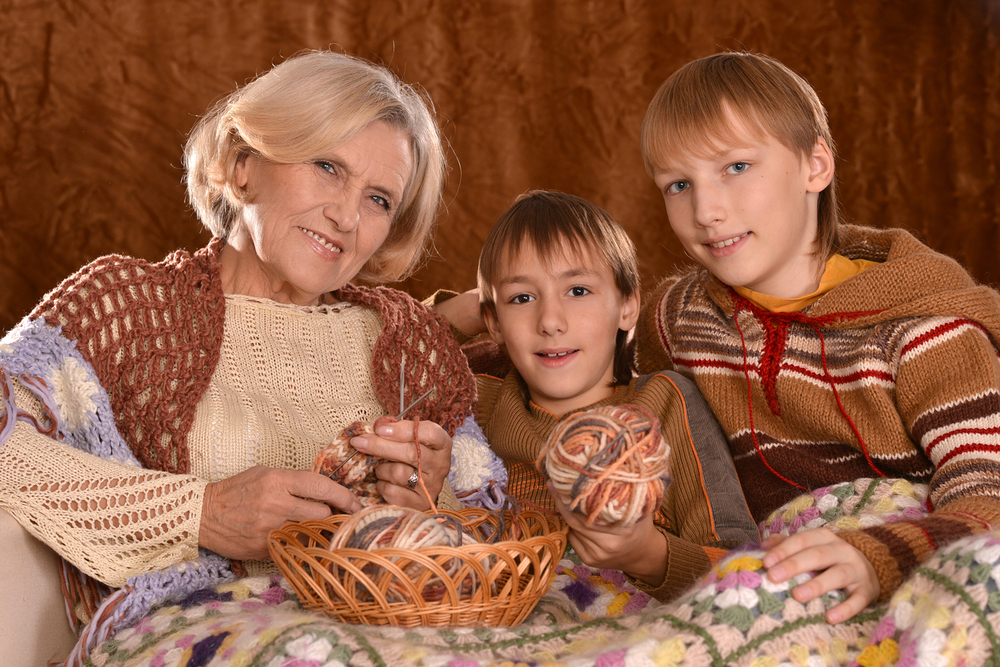The article “Leaving An Inheritance For Your Grandchildren” was originally published on MoneySense on November 7, 2018.
Dan’s mother wants to use some of the proceeds from her home sale to help her young grandchildren save for their future
Q: My mother has just sold her home and is wanting to open an account for her grandchildren for the purpose of purchasing a home or higher education.
My sons are 14 and 11 (her grandchildren).
What would the best investment account be for her to put the money in and leave it until the boys are of age?
—Dan
A: Given how much “senior” wealth is tied up in real estate in Canada, I think there are going to be a lot of grandparents with similar opportunities as your mother, Dan.
First things first, I’d want you to question your mother about whether she can afford to gift money to her grandchildren. It’s the first question I’d ask her if she were my client or my mother and considering this. If we’re talking about a small amount, especially small relative to her assets, maybe it’s not a big consideration. I just think parents and grandparents need to beware benefitting their kids and grandkids to their own detriment, despite their best intentions.
One option in a case like this is for your mother to consider a bequest in her will for a certain dollar amount or percentage of her estate to be allocated to her grandchildren. If they were under a certain age – the age of majority in their province of residence, age 21, age 25, etc. – the funds could be held in trust until they attained the desired age. Otherwise, the funds would be paid outright to them if they were old enough.
Depending on her wishes and the size of the bequest, she could even have certain parameters like the funds could only be paid prior to a certain age if they were being used for a specific purpose, like education, for example.
A bequest in her will wouldn’t result in any money being allocated to the grandkids until after her death. She would continue to manage the money as if it were her own, simply knowing that a portion would directly benefit her grandchildren down the road. If she wanted to literally hand over the money today, I’d strongly consider a Registered Education Savings Plan (RESP).
An RESP account can be used to save on a tax-deferred basis for your children’s education. The government will make matching contributions of 20% on her contributions – so-called Canada Education Savings Grants or CESGs – subject to annual and lifetime maximums. In some cases, based on your income and province of residence, the contributions may even qualify for additional government grants beyond the initial 20%.
You mother, Dan, could be the subscriber and be “in charge” of the account, or it could be you. An RESP can be used for a broad selection of post-secondary educational options, beyond just college or university.
If your mother wanted to consider a substantial gift for your kids, and wanted to make the gift now, I might consider an inter vivos family trust in addition to an RESP. A family trust is established with a lawyer and requires a trustee or trustees to hold assets for a beneficiary or beneficiaries. The trust would set out parameters around payment of trust funds to the beneficiaries. An inter vivos trust is one that is set up during one’s life, as opposed to a testamentary trust that is set up on death in a person’s will.
The potential structure and tax implications go beyond the scope of my answer today, Dan, but suffice to say a trust may be an option if the potential gift was large enough. If your mother had significant assets, well beyond that needed to comfortably fund her own retirement, she could even consider a family trust that could legitimately move investment income from her tax return onto the tax returns of other family members like you, your siblings, or her grandchildren.
This type of trust is highly dependent on her ability to fund her own retirement, her income and tax rate, other family member’s incomes and tax rates, her estate wishes, and numerous other factors.
As far as what type of investments to buy, regardless of the approach she decides upon, I’d say it depends. Your kids are 14 and 11 and the oldest could need the money within 4 years or less. That’s a short timeframe to take on too much risk.
I don’t think there is a magic answer as far as what type of investment to buy with the potential gift, so I’d really be inclined to focus on the method by which to make the gift first and foremost.
Hopefully I’ve given you a few of the considerations I’d be contemplating if your mother were my client or my own mother, Dan. Good luck.
Jason Heath is a fee-only, advice-only Certified Financial Planner (CFP) at Objective Financial Partners Inc. in Toronto, Ontario. He does not sell any financial products whatsoever.

